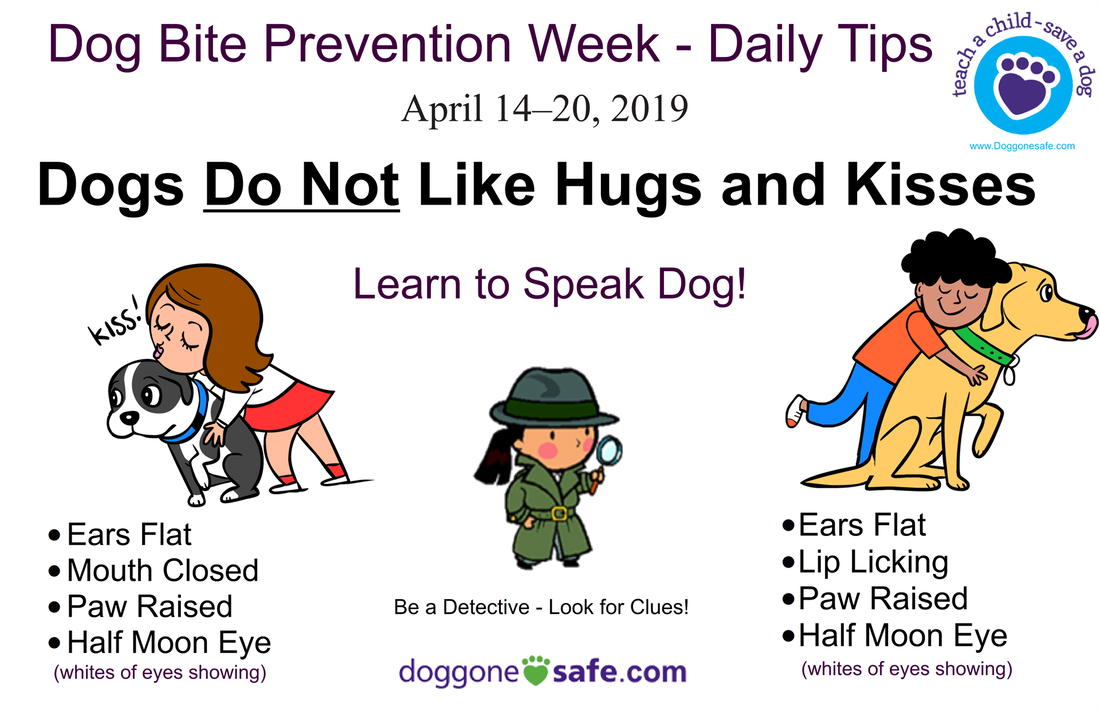|
Considering the thousands of years that humans have lived closely with dogs, it's surprising that we don't understand dogs better. We teach them to understand us (and what we want), so let's take opportunities to understand them (and what they like/don't like).
I want to share some great sites that have some amazing resources around understanding dog 'body language'. These sites also have great learning opportunities for our kids! Please visit www.thefamilydog.com/stop-the-77/ and doggonesafe.com/ Dog bites rarely happen without warning... we just miss the warnings if we don't know what to look for. Dogs will use their eyes, ears, mouth, tail and whole bodies to show us how they’re feeling. Let's learn and teach each other, as well as our kids in order to prevent dog bites, dogs ending up in shelters, and from being euthanized.
1 Comment
One week every April Dog Bite Prevention Week is recognized.
Teaching kids about dogs is so important. Why do dogs bite? Dogs bite for a variety of reasons, but most commonly as a reaction to something. If the dog finds itself in a stressful situation, it may bite to defend itself or its territory. Dogs can bite because they are scared or have been startled. They can bite because they feel threatened. They can bite to protect something that is valuable to them, like their puppies, their food or a toy. Dogs might bite because they aren't feeling well. They could be sick or sore due to injury or illness and might want to be left alone. Dogs also might nip and bite during play. Even though nipping during play might be fun for the dog, it can be dangerous for people. It's a good idea to avoid wrestling or playing tug-of-war with your dog. These types of activities can make your dog overly excited, which may lead to a nip or a bite. Courtesy of the AVMA website I am a proud member of the Pet Professional Guild. Who are they? "The Pet Professional Guild is a membership organization representing pet industry professionals who are committed to results based, science based force-free training and pet care." You can visit the site here for more information: https://petprofessionalguild.com/Canine-resources/
What does that all mean? Well, to try and summarize, I would say that the best way to train and care for your dog is to approach it from a place of respect, trust, mutual understanding, and love. The past several decades have unfortunately (and erroneously) taught many people that being dominant, or being an alpha "pack leader" is the way that your dog will learn to listen to and respect you. The studies behind these assertions have now been debunked and proven false. You can hear this directly from leading wolf expert, scientist L. David Mech himself: https://youtu.be/tNtFgdwTsbU Using dominance, force, alpha roll-overs, and any other aversive or potentially painful training method will only produce fear and mistrust in your pet and may possibly make the behaviors worse (i.e. create aggression). There is so much we can learn about how dogs see the world from their 'canine' perspective. Once we learn about dog behavior, we can better communicate with our furry family members in a positive and humane manner. Did you know that puppies should start learning and experiencing new things at a very early age, even before leaving their moms? The first 12 weeks of a puppy's life is referred to as a critical socialization period. The pup's experiences (or lack of) during this period can impact the rest of his or her life.
|
AuthorSandy is the ultimate dog lover, who can't get enough of learning and researching 'all things dog'! Join in this journey if you also love dogs and love to learn more ways to make the lives we share with our dogs the best they can be. Archives
June 2019
Categories |
Proudly powered by Weebly



 RSS Feed
RSS Feed